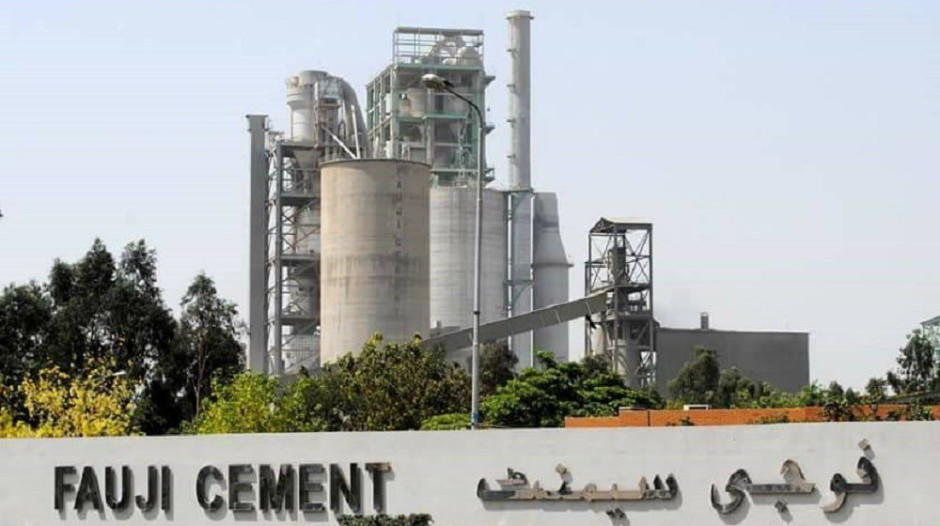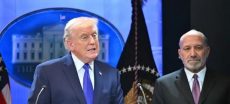[vc_row][vc_column][vc_column_text dp_text_size=”size-4″]ISLAMABAD: The Supreme Court (SC) made it clear on Wednesday that it will not reverse its April 4 order, as it issued notices to all political parties, including the Jamaat-e-Islami, for the hearing tomorrow.
The three-member bench was hearing the defence ministry’s appeal against the May 14 elections in Punjab.
The chief justice stated at the start of today’s hearing that the issue has dragged on for far too long and asked the attorney general of Pakistan to read the finance ministry’s report aloud in the courtroom.
According to the chief justice, the government stated that the funds needed for the elections would be provided through a supplementary grant, but the “matter was sent to the parliament.”
According to the AGP, the finance committee referred the matter to the cabinet and parliament.
Justice Akhtar questioned how the government could be prevented from approving the grant, adding that the premier should have a majority in the NA because a majority is required in financial matters.
He added that the government had the right under the Constitution to issue a supplementary grant and asked how the assembly could intervene in the matter.
The bench member also stated that the finance ministry’s team had repeatedly stated that approval for the supplementary grant could be sought later, and he questioned how the grant could be rejected by the lower house.
In response to the AGP’s response that funds must be approved or are otherwise classified as “unconstitutional,” the chief justice stated that there had been no previous instance of referring such administrative matters to the standing committee and that funds spent on polls were a “necessary” expenditure.
CJ Bandial also stated that the ECP had stated that elections in the two provinces of Punjab and Khyber-Pakhtunkhwa (K-P) could not be held until October due to security concerns.
“Terrorism has been present in the country since 1992,” said the chief justice, noting that elections have been held despite terror threats.
Using the 2008 elections as an example, shortly after the assassination of former Prime Minister Benazir Bhutto, Justice Bandial questioned what new danger there was in not holding elections in the country.
AGP Awan responded that the security forces had previously performed election duties, and that “elections will take place in two provinces separately” now.
The application was scheduled to be heard by the Supreme Court at 11:30 a.m. today, but the hearing began at 2 p.m.
Previously, on April 4, a three-judge bench led by Chief Justice of Pakistan (CJP) Bandial and comprised of Justice Munib Akhtar and Justice Ijazul Ahsan declared the Election Commission of Pakistan’s (ECP) decision to postpone elections for the Punjab Assembly as “unconstitutional” and ordered polls to be held on May 14.
On April 14, the same bench directed the State Bank of Pakistan (SBP) to release Rs21 billion to the ECP for the conduct of elections in Punjab and Khyber-Pakhtunkhwa (K-P) and to send a “appropriate communication” to the finance ministry by Monday (April 17).
In addition to its report, the defence ministry filed a civil miscellaneous application in court yesterday (Tuesday), asking the court to recall its April 4 order.
“The order dated 04-04-2023 be recalled with the directions that general elections to the National and all Provincial Assemblies be held together, upon completion of the terms of the National and the other two Provincial Assemblies Sindh and Balochistan,” it said.
“Because of the current security situation and counter-terrorist operations in K-P and Balochistan, as well as intelligence-based operations in Punjab and Sindh, the Armed Forces, Rangers, Frontier Constabulary, and other forces are not logistically available to be repositioned and reposted for providing election security twice in a 6-month period.”
“Significant time is required to prepare the members of the Armed Forces for election duty, given much of the force has been actively engaged in operations, for a considerable period of time.
“The security situation in Punjab and Sindh has been stable in light of the efforts of the ongoing operations in the K-P and Balochistan, respectively. Therefore, any diversion of troops from the K-P and Balochistan will result in directly affecting the security situation in Punjab and Sindh.”
The defence ministry also said that it had reasons to believe that India’s top spy agency has planned to exploit fault lines of the country to hurt the federation of Pakistan if elections at the Punjab Assembly are held prior to elections for the national legislature and other provincial assemblies.
“The RAW [Research and Analysis Wing] identified fault lines to hurt the federation of Pakistan especially [by fanning] ethnic issues, water disputes, [the alleged] resource capture and monopoly of Punjab and as terrorists say in Balochistan, the colonisation by Punjab.
Also Read: PM Shehbaz lauds Army Chief’s efforts in securing financing
“Therefore, holding of general elections of Punjab Assembly would fuel the situation,” the ministry said in the report submitted to the apex court on Tuesday.
Notably, top officials of the country’s military had also met with CJP Bandial and the other two apex court judges who were also on the bench deciding the Punjab polls issue.
Sources had revealed that the meeting between the judges and themilitary officials continued for over three hours in the CJP’s chamber. They said the intelligence official gave a briefing to the judges on the security issues confronting the country.
Meanwhile, the ECP expressed its own reservations about the provision of Punjab Assembly elections on May 14, warning that “anarchy and chaos” could erupt in the country if the election schedule is not followed.
Along with the electoral watchdog, the Ministry of Finance and the central bank (SBP) submitted reports to the court yesterday informing it of the non-release of funds for election provision despite court orders.
Also Read: SC begins hearing defence ministry’s request to recall Punjab elections order
It should be noted that the National Assembly Standing Committee on Finance and Revenue returned to the government on Monday (yesterday) issues concerning election funds.
The SBP allocated funds in accordance with court orders, only to have the matter referred to the federal cabinet, which then brought it before the National Assembly.
On the same day, the lower house rejected the government’s motion to grant Rs21 billion to the federal government to cover uncharged expenditure on the ECP during the fiscal year ending June 30, 2023.
With the ongoing conflict within the Supreme Court and the possibility of a clash with Parliament, all eyes are on CJ Bandial and how he and his fellow judges will ensure compliance with the judicial order to hold Punjab Assembly elections on May 14.[/vc_column_text][/vc_column][/vc_row]











